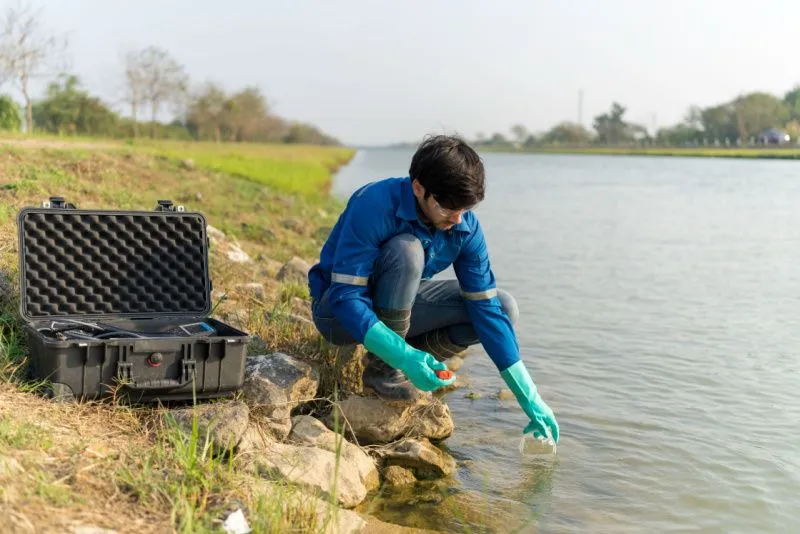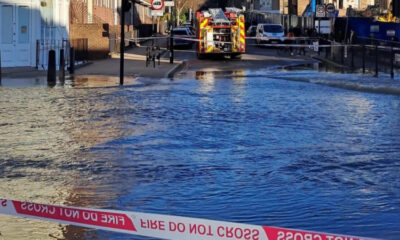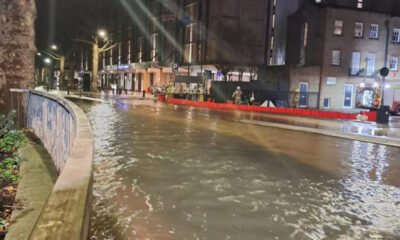Business
Thames Water Faces Scrutiny Over Pollution Controls

Thames Water is facing renewed scrutiny as environmental groups, lawmakers and local communities raise serious concerns about the company’s pollution controls across rivers and waterways in the London region. Reports of untreated wastewater entering natural habitats have sparked public frustration and intensified pressure on the company to strengthen monitoring systems. Residents living near affected rivers have expressed growing alarm about declining water quality, disruption to wildlife and potential health risks. The issue has become a major talking point in the business and policy sectors due to its impact on environmental standards and corporate responsibility.
Regulatory Pressure Increases
Government regulators are demanding clearer compliance measures after several investigations revealed gaps in pollution reporting and control procedures. Agencies responsible for environmental protection are pushing Thames Water to implement stronger safeguards and adopt advanced monitoring tools that can help prevent harmful discharges. Senior officials have warned that companies responsible for critical public resources must demonstrate greater accountability. This has led to discussions about stricter penalties for violations and closer oversight of water companies operating across the region.
Financial Strain Affects Operations
Thames Water has publicly acknowledged operational challenges linked to financial strain. The company has been navigating rising costs related to infrastructure maintenance, system upgrades and environmental protection initiatives. Analysts note that the firm’s financial condition has raised questions about its ability to invest in long term improvements while managing immediate regulatory demands. Some experts believe that structural changes may be necessary to ensure that the business remains stable while fulfilling environmental obligations. Investors and industry specialists are watching closely to understand how the company plans to balance its responsibilities.
Impact on Local Ecosystems
Environmental scientists have highlighted the significant effects of pollution on river ecosystems. Untreated wastewater can harm fish populations, reduce oxygen levels and disrupt plant life that supports the broader food chain. Bird species that rely on river habitats are also affected as water quality declines. Conservation groups warn that repeated pollution incidents may lead to long lasting ecological damage if not addressed quickly. Community volunteers who participate in river cleanups have reported more visible waste and stronger odors along riverbanks, reinforcing concerns about the health of local ecosystems.
Public Reaction and Community Activism
Public outrage over pollution incidents has led to growing activism among residents. Community groups are organizing campaigns, petitions and demonstrations calling for stronger environmental protection and clearer accountability from Thames Water. Many citizens believe that access to clean water is a fundamental right and that companies managing essential resources must prioritize transparency. Social media platforms have played a central role in amplifying community voices and bringing attention to local cases of river contamination. The strength of public engagement has added more pressure on policymakers to respond.
Calls for Better Infrastructure
Experts argue that outdated infrastructure is one of the primary causes of recurring pollution events. Much of the existing sewer network was built decades ago and lacks the capacity to handle current population levels and rising climate related pressures such as heavy rainfall. Infrastructure upgrades require significant investment in new treatment facilities, expanded storage capacity and advanced sensors to detect leaks or overflow risks. Industry leaders agree that modernizing these systems is essential for long term environmental protection, but cost remains a significant hurdle.
Role of Climate Challenges
Climate change has intensified the strain on water management systems by increasing the frequency of heavy rainstorms and flooding events. These conditions place additional pressure on outdated pipes and treatment plants, heightening the risk of overflow. Environmental researchers point out that climate resilience must be integrated into future planning to ensure that water networks remain reliable under changing weather patterns. Thames Water is under pressure to align its strategies with modern climate adaptation practices that meet both regulatory and environmental expectations.
Business Reputation at Stake
Thames Water’s reputation has come under scrutiny as public confidence declines. Consumers expect companies responsible for vital resources to operate with integrity, transparency and long term commitment to environmental stewardship. Repeated pollution incidents have raised doubts about corporate oversight and management effectiveness. Business analysts warn that reputation challenges can influence investor confidence, regulatory relationships and community trust. Thames Water must work to rebuild credibility through consistent performance and meaningful environmental initiatives.
Focus on Solutions and Collaborative Efforts
Efforts to address pollution concerns include discussions about partnerships between water companies, environmental agencies and local councils. Collaborative approaches may help accelerate improvements by combining resources, sharing expertise and coordinating cleanup efforts. Conservation groups emphasize the need for community involvement, noting that public awareness and volunteer programs play a key role in protecting rivers. The debate continues to highlight the importance of responsible corporate behavior in maintaining environmental standards across the region.




















